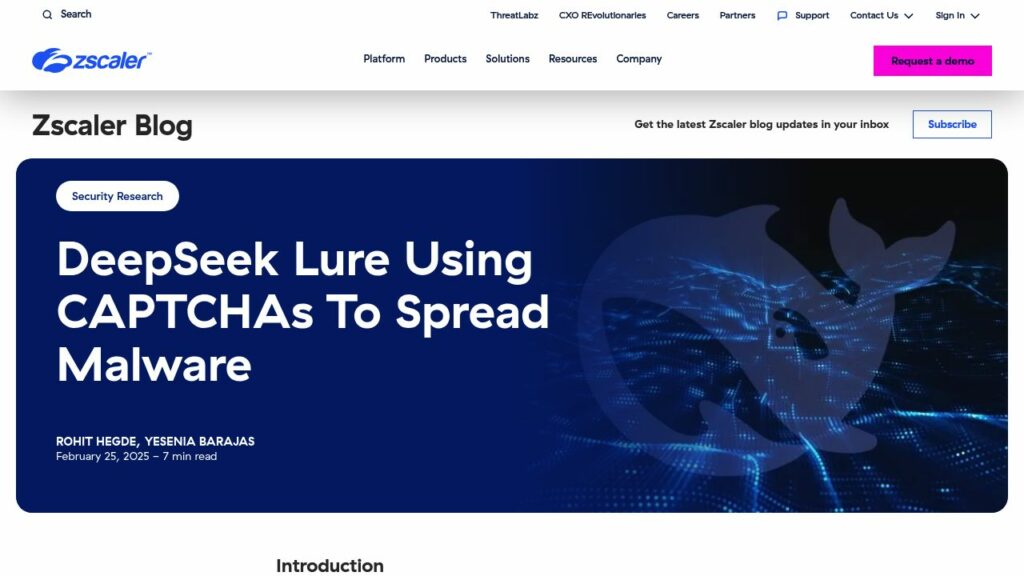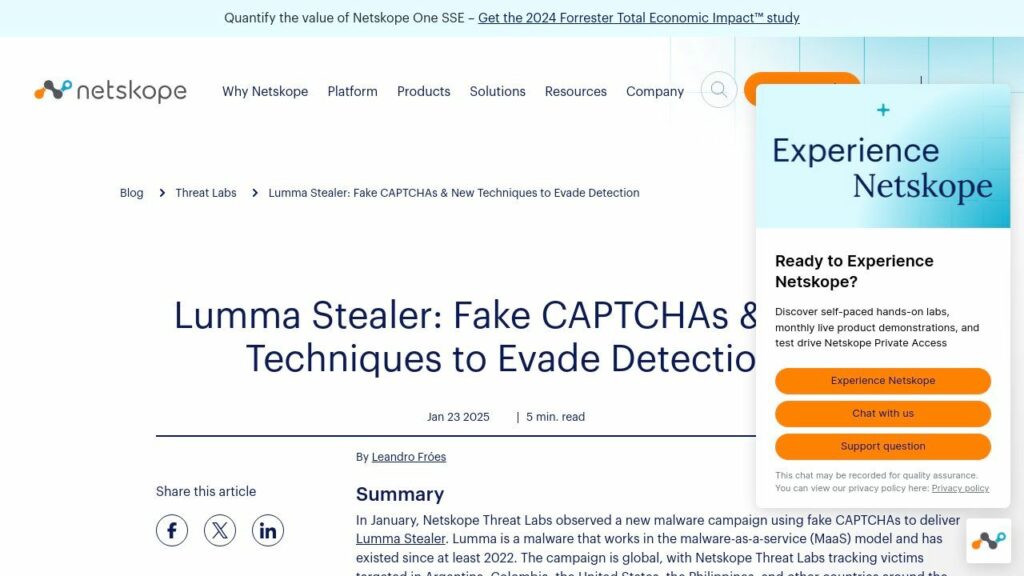DeepSeek Lure Used To Spread Malware
DeepSeek malware campaign exploits the popularity of the DeepSeek AI chatbot, using look-alike domains to mislead users into executing malware. This includes techniques such as clipboard injection via a fake CAPTCHA page, leading to the installation of the Vidar information stealer. Key concerns raised include the increased risk of data theft and the need for organizations to enforce security measures around generative AI tools.
https://www.zscaler.com/blogs/security-research/deepseek-lure-using-captchas-spread-malware

